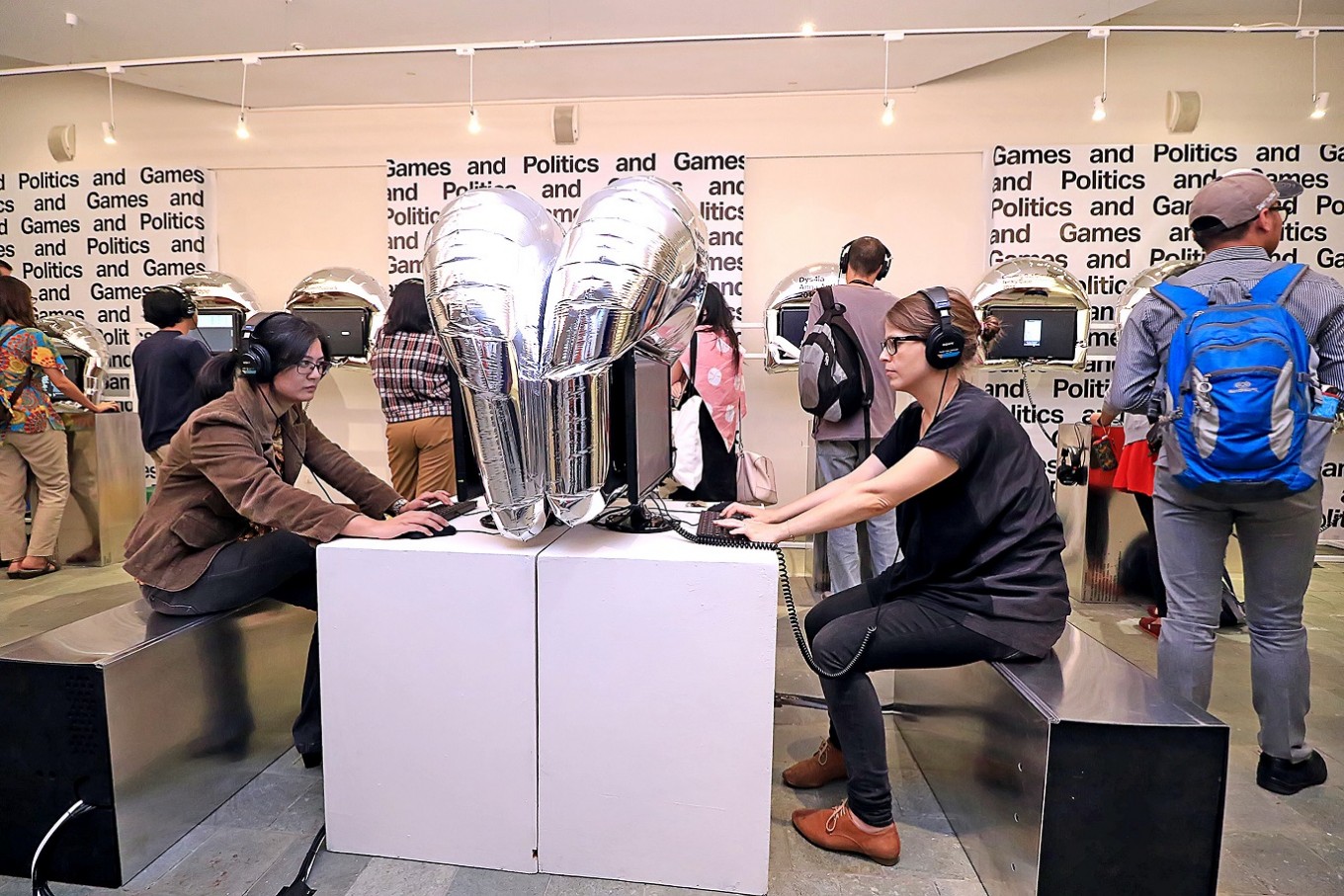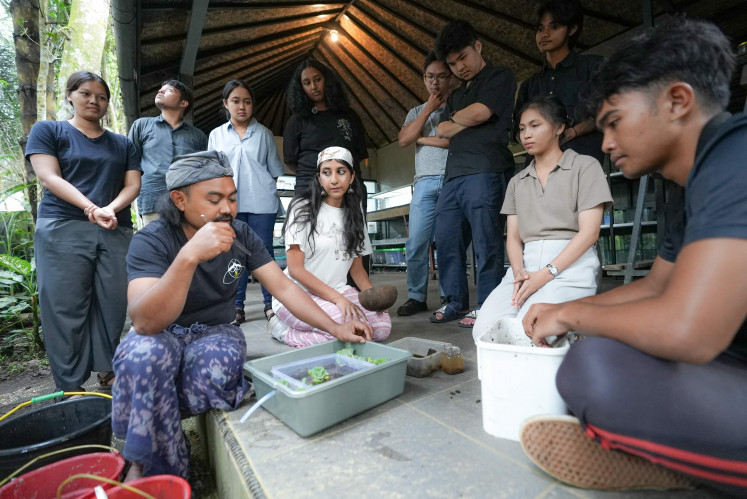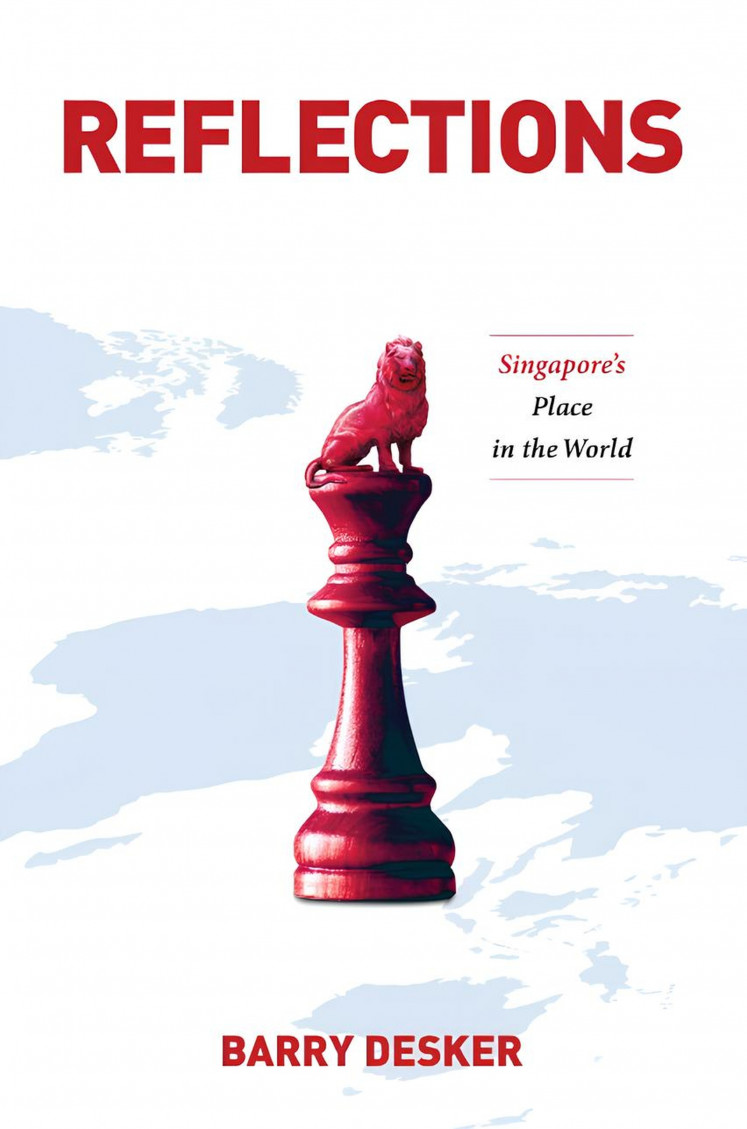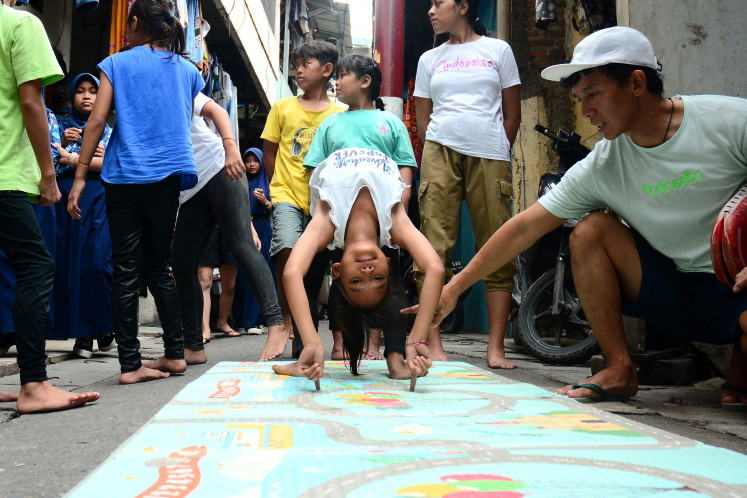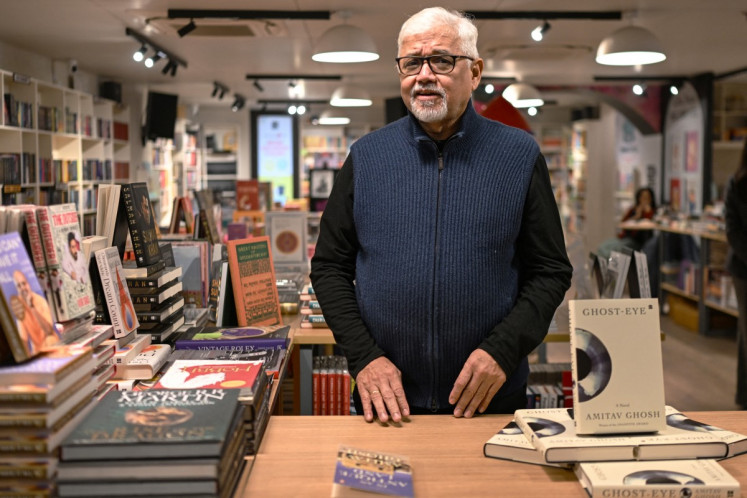Popular Reads
Top Results
Can't find what you're looking for?
View all search resultsPopular Reads
Top Results
Can't find what you're looking for?
View all search resultsPlaying political games
Political games do not belong only to the élite. An ongoing exhibition shows that the general public can also play them, in a fun way.
Change text size
Gift Premium Articles
to Anyone
F
ollowing the end of the Cold War, the world has entered a new political tension, with more and more people questioning democracy, and in some places religion issues are revived in the most violent forms, brewing horizontal conflicts all around.
Amid such turmoil, it becomes crucial to understand current political discourse to survive these troubled times.
But learning about politics can be done outside the classroom or the political arena.
An ongoing exhibition titled Games & Politics, at Goethe Haus in Jakarta allows people to learn about politics in a fun way. Showcasing 16 games developed by Germans, the exhibition, which runs until May 27, attempts to make people familiar with and aware of some of the most pressing contemporary issues of our time.
“Interaction between political discourse and games makes the discourse more attractive. Since childhood, games have always been part of our culture. They are great media to make people aware of social and political problems while find peaceful solutions for them,” Goethe-Institut Indonesia director Heinrich Blömeke told The Jakarta Post on the sidelines of the exhibition’s opening.
Curator Jeannette Neustadt said the exhibition looked at games that dealt with questions of social conditions and injustices, allowing players to assume new, often marginalized perspectives.
Games like Dys4ria or Coming Out Simulator, which touch on realities faced by transgender women and gays, respectively, in a vivid manner, could be counted as ones representing such marginal discourse.
“It is very important the games handle these questions with respect while not trying to simplify the complexity of such important topics like war, migration or gender roles,” Neustadt explained in an email to the Post from Germany.
Thematically, the exhibition is curated under several different themes.
The theme “making opinions” deals with how computer games could act as commentary on actual political events, while on “military matters” the games reflect on the alliance between war and the entertainment industry.
“Multiperspectivability” seeks to examine and question stereotypical gender roles in a critical manner, while “media critics” seeks to explore computer games as instruments of self-reflection for the media.
The theme “migration stories” explores the idea of borderlines and last but not least, “mapping power” seeks to observe humans trapped between agency and powerlessness. Following is a peek into four of the games:
Orwell
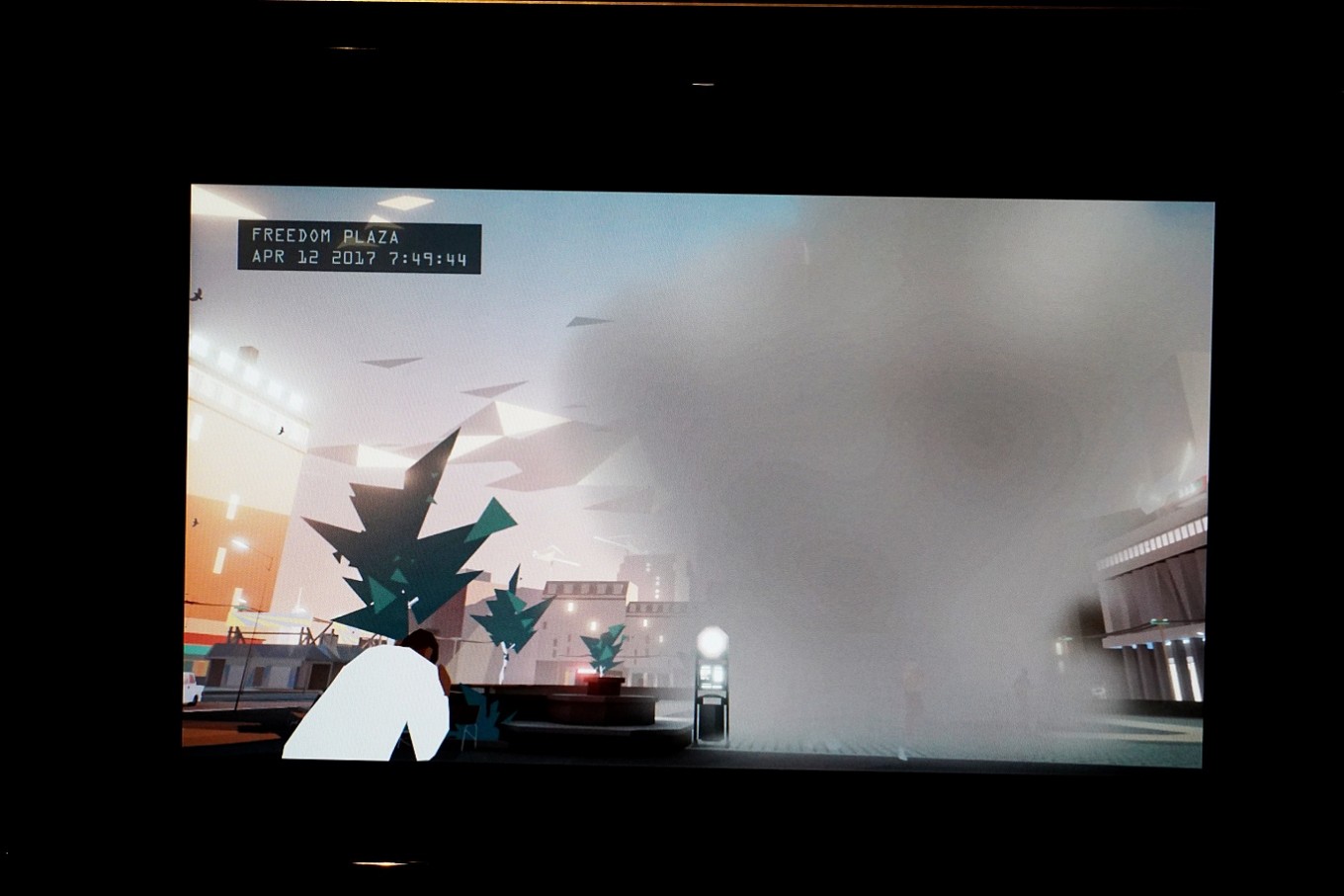 Orwell(Goethe-Institut Indonesia/File)
Orwell(Goethe-Institut Indonesia/File)
George Orwell’s visionary 1949 novel 1984 eerily predicted our present-day with such prescient accuracy. “Big brother” is watching us every day through surveillance cameras and wiretapping as well as big data. The game takes the reality into a much scarier prospect, where trusted citizens are appointed by the state to conduct surveillance on their fellow citizens, particularly those who might stir things up or compromise the authority of those in power.
Coming Out Simulator
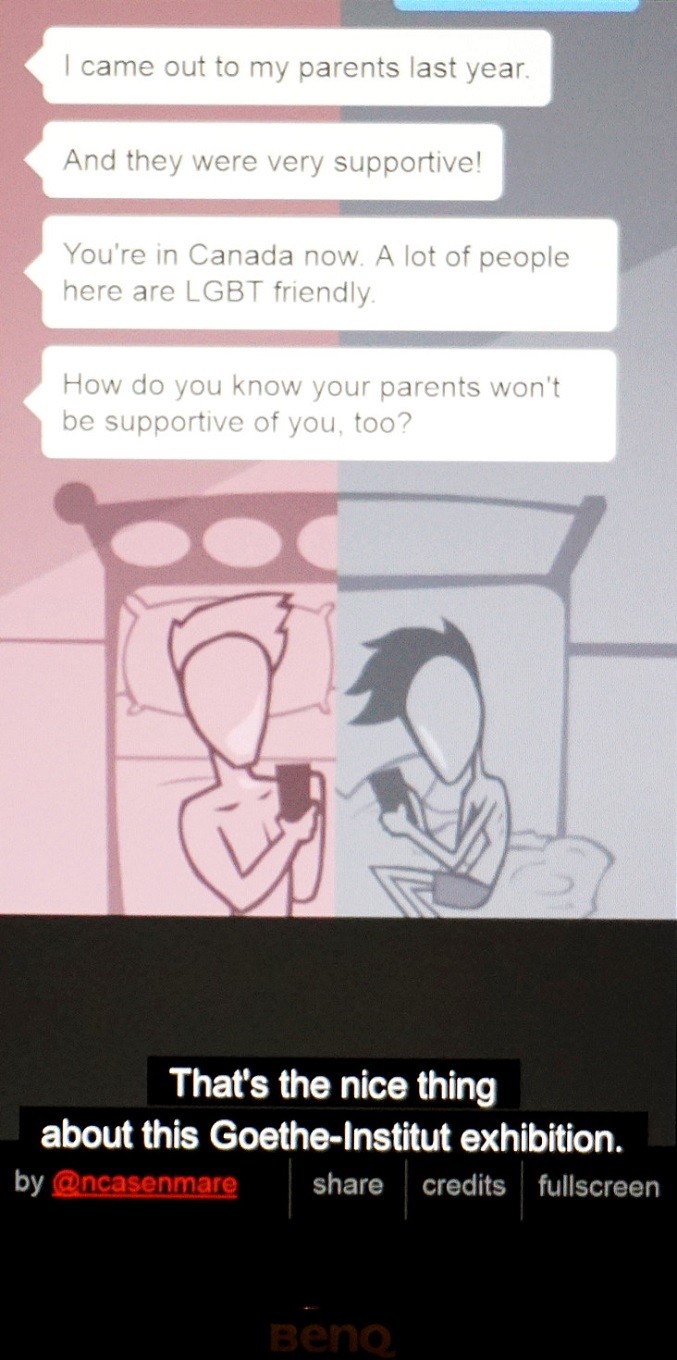 Coming Out Simulator(Goethe-Institut Indonesia/File)
Coming Out Simulator(Goethe-Institut Indonesia/File)
Puritanical Indonesians are scared out of their wits by the growing visibility of the lesbian, gay, bisexual and transgender (LGBT) community. But just how “scary” are they? Are the stereotypes and prejudices about them accurate? In this game, a simulator mimicking a WhatsApp conversation allows you to choose from three possible scenarios surrounding a gay man’s coming out of the closet experience, taking a participant through the pain and prejudice surrounding the revelation.
Dys4ria
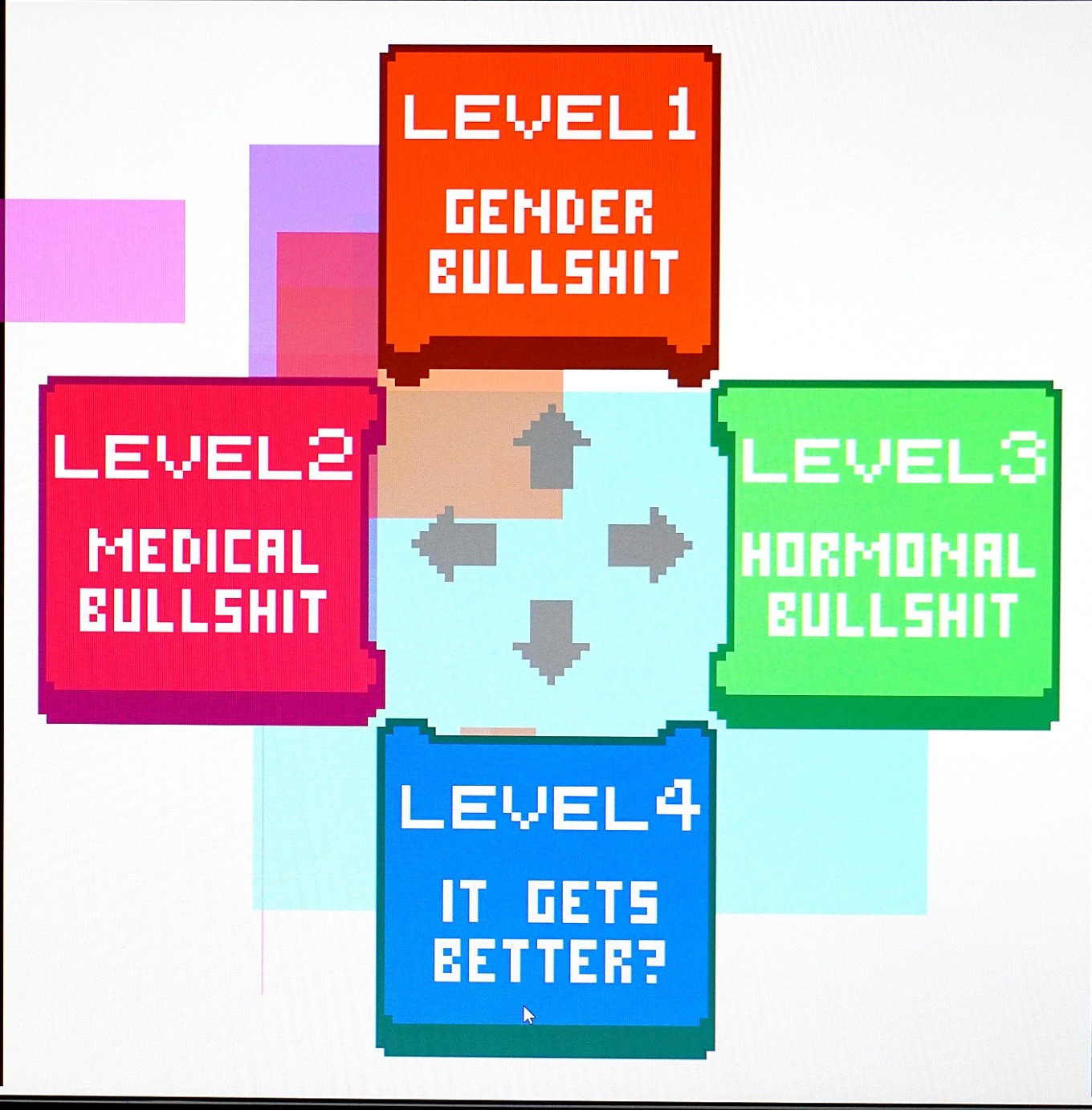 Dys4ria(Goethe-Institut Indonesia/File)
Dys4ria(Goethe-Institut Indonesia/File)
The LGBT connection again: how does it feel to be trapped in the wrong body? This game, presented in a format resembling the popular Tetris game, allows a participant to take a closer look into the bitter humor and irony of transitioning for a transgender woman. The social prejudice, the painful effect of hormones and the weird bodily changes come into one in this mind-blowing game.
This War of Mine
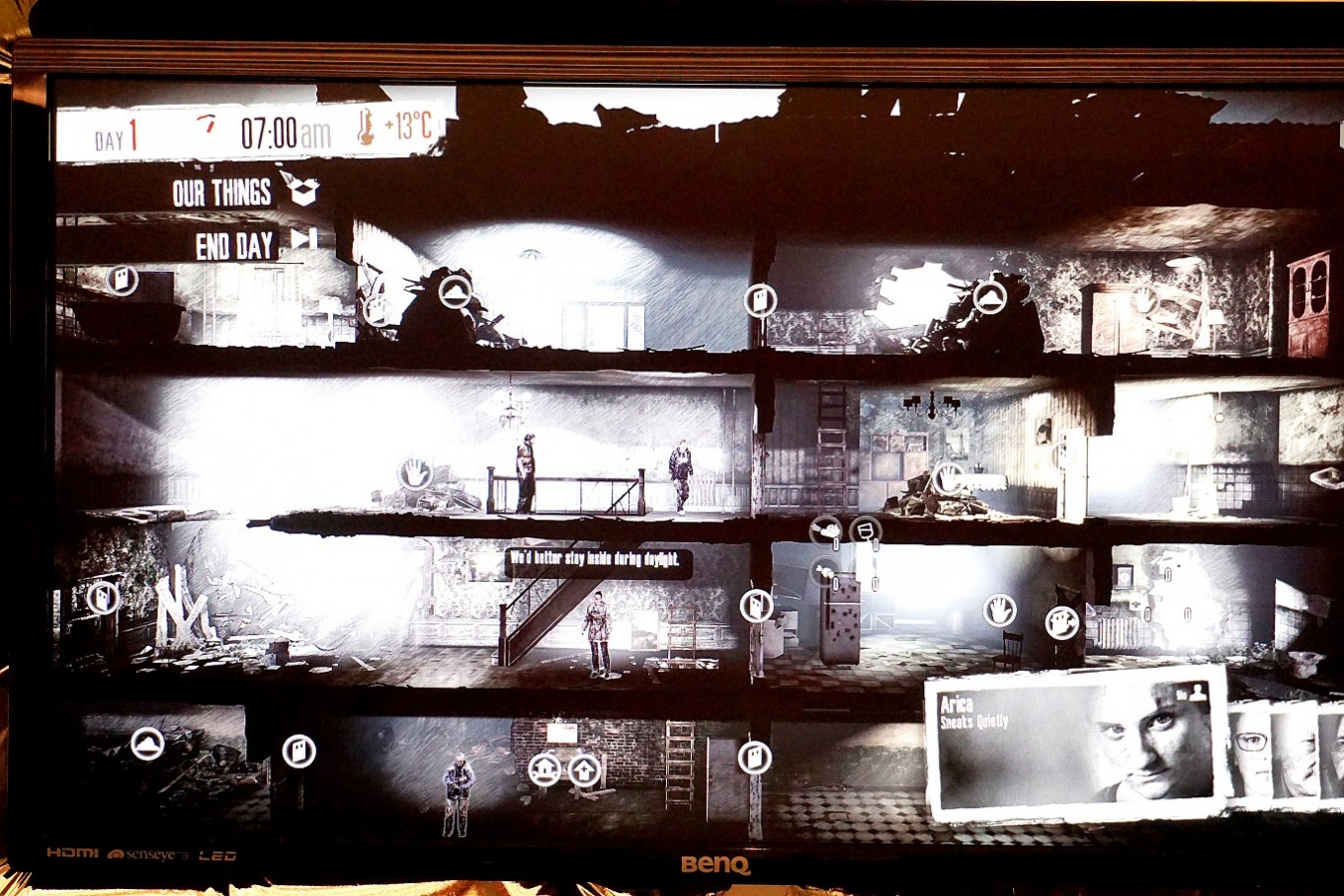 This War of Mine(Goethe-Institut Indonesia/File)
This War of Mine(Goethe-Institut Indonesia/File)
This is a game where you have to create a sound survival strategy where civilians are trapped in a war zone. The game was inspired by survivors of wars in Bosnia, Iraq and Syria. The game requires a participant to devise a detailed and well thought-out plan to outlive a city that has collapsed into debris and outlive the ferocious destructiveness of the war itself.

